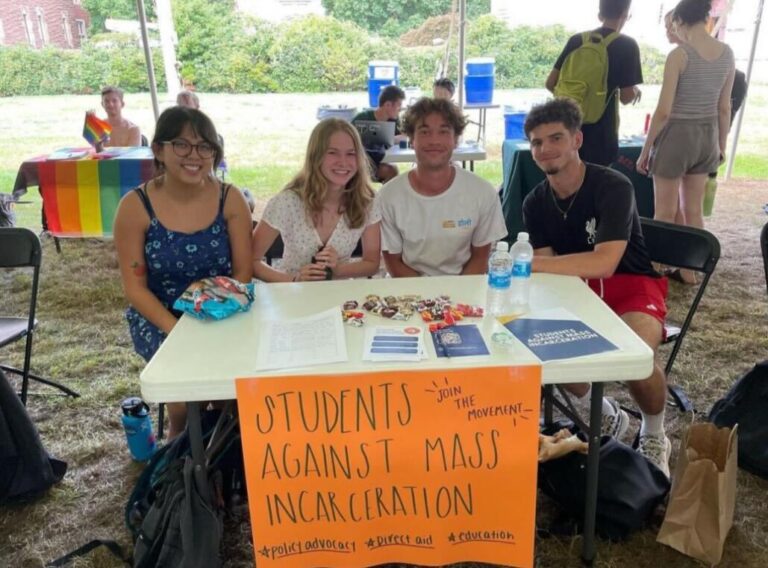Lily Mellitz ’26
Features Editor
In the rapidly evolving landscape of Artificial Intelligence (AI) and emerging technologies, understanding the implications and possibilities of these technologies is more crucial than ever. Kenneth Kousen, adjunct professor of Computer Science at Trinity College, recently shared his insights with the Tripod on the current state and future of AI and emerging technologies.
Kousen stands as a prominent figure in both the academic and professional world, blending entrepreneurship with a passion for teaching and a love for sharing knowledge. With an impressive academic journey that includes earning his Bachelor’s degree from Massachusetts Institute of Technology (MIT), Master’s degrees from Princeton University and Rensselaer at Work and a Ph.D. from Princeton, Kousen brings a wealth of experience and expertise to his various roles.
Outside of academia, Kousen runs his own business: Kousen IT Incorporated. He frequently presents at the “No Fluff Just Stuff ” U.S. conference series, and travels globally to speak at conferences around the world. He also runs a Youtube channel called “Tales From the Jar Side” where he shares insights, discussions and tutorials related to programming, technology and software development. Beyond podiums and webinars: Kousen has a total of six books to his name, including his most recent, “Help Your Boss Help You,” where he advises employees on how to develop healthy and productive relationships with their managers.
At Trinity, Kousen teaches courses in large scale application development, primarily in areas using Java (a coding language) and Open Source development. In one of his most popular classes “Special Topics: Large Scale Development,” students explore the complexities of handling big software projects. They learn about theories like how open-source projects function and different design patterns and get hands-on experience with practical skills.
Transitioning from his personal journey, Kousen delved into the dynamic evolution of technologies. “I’ve been in this field for a long time and I’ve seen many major changes,” Kousen said. “The big one in my generation was the rise of the web.” He went on to explain that while the internet previously existed, it was the introduction of user-friendly web browsers that revolutionized a shift in connectivity. Suddenly, complex networks became accessible to everyone, causing a wave of innovation and the birth of entire industries.
“Something similar to that is happening now,” Kousen said. “AI is doing things we’ve never thought of before.” One example Kousen gave was the significant time and effort efficiencies that AI can offer, especially for common, repetitive tasks where details might be overlooked.
“When I’m coding in Java, I know how to do that so I don’t need a lot of AI assistance,” Kousen said. However, in instances where he has worked with Python — a coding language he’s less experienced in — he has often relied on AI to handle routine tasks, such as generating scripts to organize files. Kousen further elaborated on how AI could aid in software development practices, such as when committing code changes to a GitHub repository (a place where code for a project is stored and managed, allowing multiple developers to work together and track changes). AI tools can help crafting detailed commit messages, which not only document the changes made but also provide details into the reason behind them.
However, Kousen also stressed the importance of understanding the limitations of AI. He noted that some people are comparing these emerging AI tools to interns with access to vast resources but lacking in comprehensive understanding.
“I wouldn’t say that’s quite right because interns still understand things, they just might need some explanations,” Kousen said. “These things [AI] don’t understand anything.”
Despite their impressive capabilities and creativity, AI algorithms primarily operate through pattern matching and lack true comprehension or depth. As an example, he shared about asking ChatGPT a simple math question: ‘What’s nine plus seven?’ Its response of ‘zero’ prompted his correction to 16, to which ChatGPT agreed. Yet, when asked about ‘10 plus 20,’ it returned ‘16.’
“ChatGPT doesn’t understand,” Kousen summarized. “There’s no depth there. It learns by pattern matching with everything it’s been trained on.”
Having spent the past year delving into the realms of AI and emerging technologies, Kousen offered several insights to current students preparing to enter the workforce.
“If you are able to work with AI tools, you will have an advantage over students who are not able to work with the tools,” he said. “We can argue the ethics and whether it’s reasonable to try to replace people with AI, but the truth is that [AI is] not going away. They are here and they are going to get more pervasive, so my attitude is you might as well learn how to work with [them].”
Kousen emphasized that the true concern isn’t AI replacing human workers entirely, but rather the misconception among high-level managers that it could.
“The danger time is now, when the managers — especially non technical managers — don’t understand the limitations,” Kousen explained. “All they see is the pretty pictures and dazzling productivity and they don’t realize the danger of AI.”
Kousen illustrated this point with a scenario where a manager might believe AI could write Hollywood scripts better than professional script writers, or expect it to code whole systems more proficiently than professional coders. While AI excels at imitation, it struggles when it comes to creativity or adapting to unique situations, which could lead to serious problems down the line. In this scenario, Kousen recommended building a strong relationship with one’s manager for personal well-being and self preservation within a company, especially in light of the increasing prominence of AI.
“What becomes important is what you can offer to the manager, which is to be the technical expert that helps them assess what these technologies can and cannot do,” Kousen said. “Essentially, what is worth their money and what isn’t.”
“The focus of education then is to make sure that the students get enough experience using these tools and trying them out to understand their limitations,” Kousen said. “And then they can offer to be the manager’s tech expert.”
By gaining hands-on experience, students can confidently navigate discussions about the potential benefits and drawbacks of AI within their managers, proving to be valuable assets.
When asked how to remain valuable to one’s managers, Kousen replied, “The people who are successful in business are the ones who keep learning.”
Kousen stressed the importance of embracing learning in order to maintain engagement and professionalism in any chosen field. He emphasized the value of viewing one’s work not just as a job but as a profession; a career where one cares deeply about what they do and take pride in making a difference. He acknowledged that careers often take unexpected turns, but reassured that by approaching learning with a positive mindset, individuals will be able to adapt and thrive.
Kousen’s passion for software development shines through in his teaching, research and personal endeavors. His expertise on AI and emerging technologies not only equips his students with valuable skills and knowledge, but also instills in them the importance of critical thinking and awareness of the risks in the technological field. Serving as a guiding light for students and professionals alike, Kousen prompts all to contemplate the importance of growth, resilience and what it means to be human in the ever-changing realm of technology.








+ There are no comments
Add yours